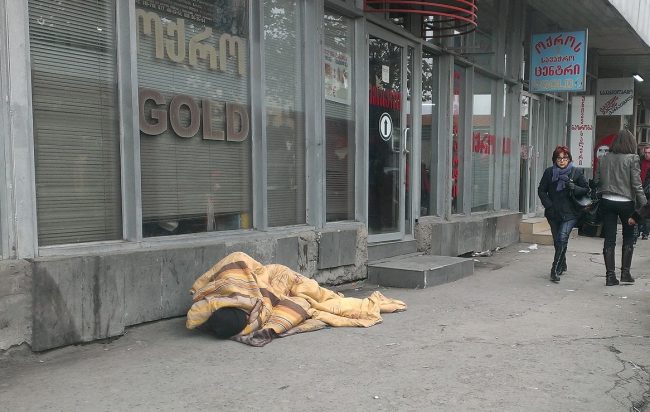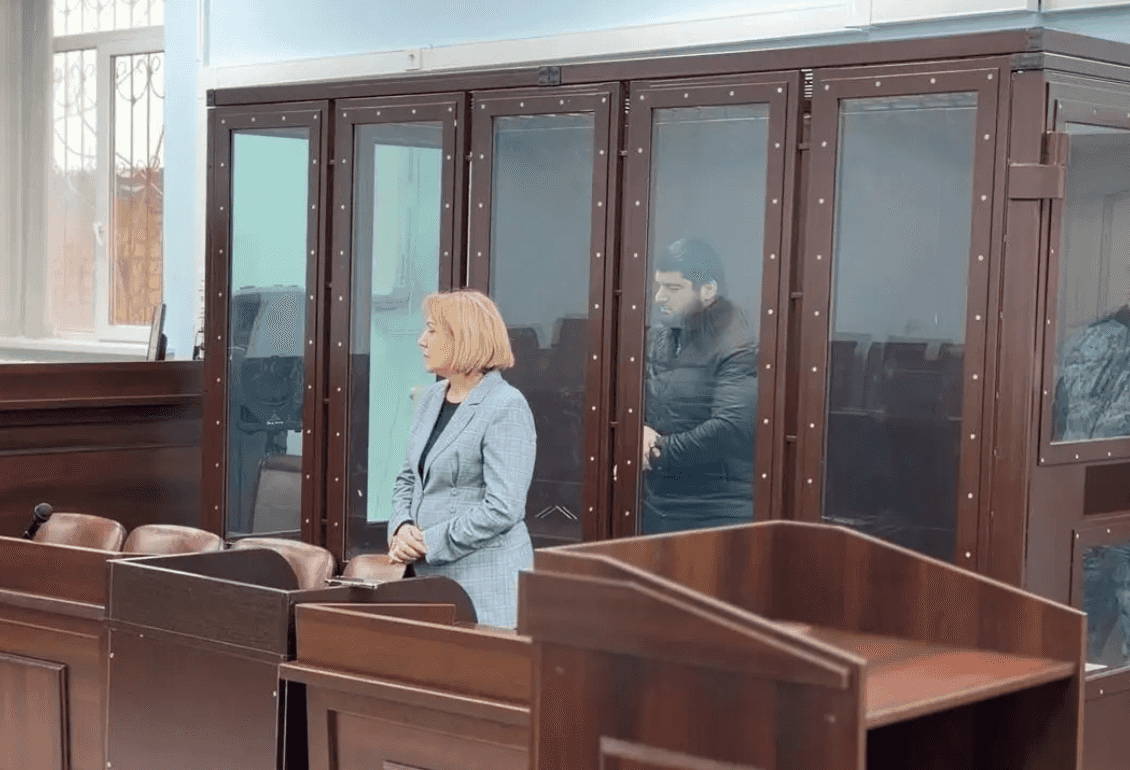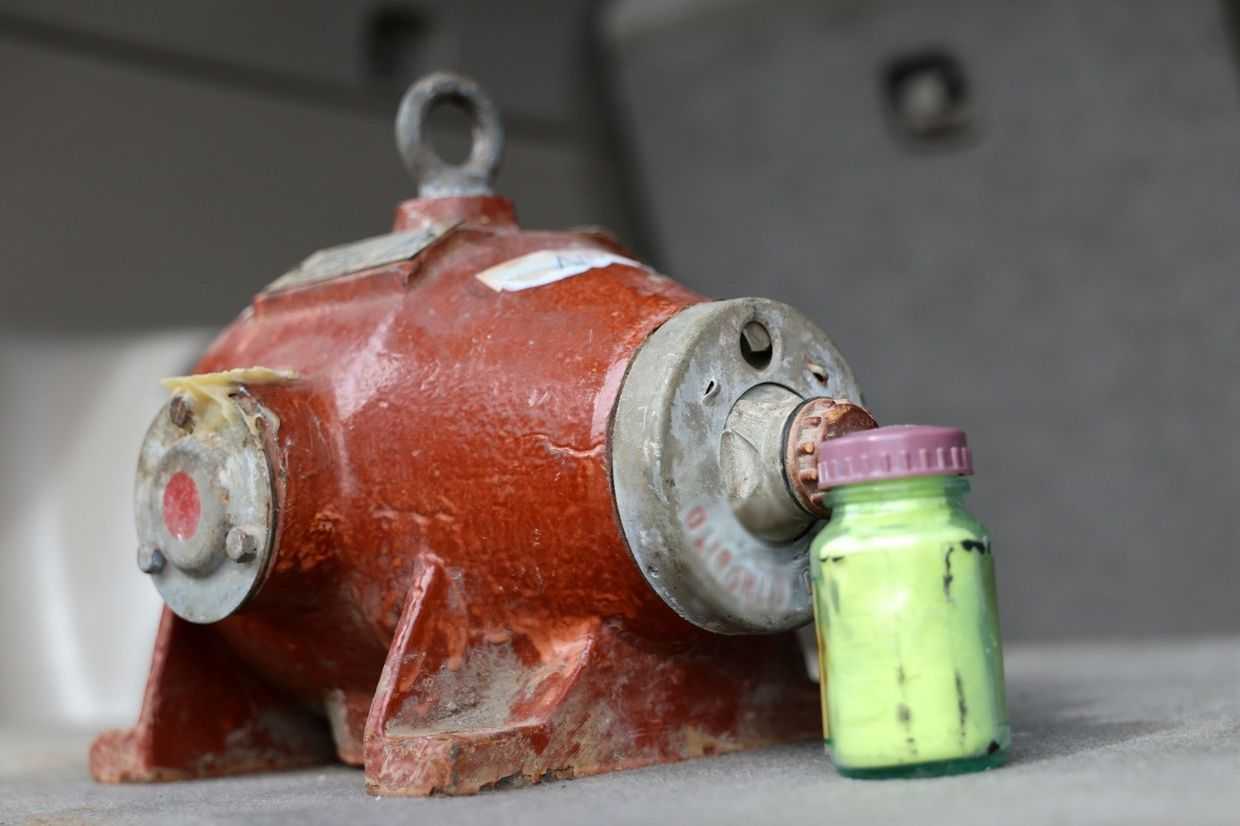

 Street children in Georgia lack access to education and healthcare, a new study by UNICEF has found. According to the study, there are places in Georgia known for criminal activities that involve children, but untouched by authorities.
Street children in Georgia lack access to education and healthcare, a new study by UNICEF has found. According to the study, there are places in Georgia known for criminal activities that involve children, but untouched by authorities.
The 24 July report by the United Nations Children’s Fund (UNICEF) titled ‘Children living and working in the streets of Georgia’ claimed that ‘poverty, family dysfunctionality, violence in families, and parents’ migration’ are leading causes of children in Georgia ending up on the streets.
The study identified four groups of street children: homeless children and youth, unaccompanied children in the street sleeping at home, street children of mobile street families, and children of homeless families. The study said these children come from diverse ethnic groups, predominantly ethnic Georgians, two groups of Romani speakers, Azerbaijani Kurds, children of refugees from Armenia, and people displaced from South Ossetia and Abkhazia.
‘Older children develop separate codes of conduct and internal ties of dependence that contribute to the perpetuation of street lives over time, and are potentially a source of recruitment into criminal activity and violence’, the study said. It described the internal organisation of these children and stated that children stay and move together in groups or clusters in order to protect each other, to find places to spend the night, or cooperate in economic activities like petty trading, street begging, and petty crime.
‘Children who work and live on the streets are particularly vulnerable to violence from adults, as well as from other street youth’, UNICEF Representative in Georgia Laila O. Gad said in a statement.
Catalin Gherman, Deputy Head of Cooperation at the EU Delegation to Georgia, said that Georgia had already made some efforts to establish shelters and services, but more work needed to be done.
‘Protecting children against all forms of violence and addressing the most vulnerable children’s needs is a priority for the EU, and also a part of the EU–Georgia Association Agreement. We note that the Government is making progress in this area, but there is still some work to be done’, said Gherman.
The study found that some children who form groups create structures of subordination, dividing themselves into superiors and subordinates. It said older children used younger children as ‘shields’, pushing them to commit crimes and hand over profits.
‘Often, this is organised so that criminal activity — like stealing from shops and stalls, breaking into and/or stealing valuables from cars — is carried out by the younger children, with older children keeping guard while the younger children carry the loot. This has to do with the lower age limit in Georgia of 14 years for criminal prosecution; older children use younger children to avoid [it]’, the study said.
It also described a cult-like group known as the Morgue Children, whose territory is in an underground area.
‘Former members recounted that children are initiated into the group through rites, both by older youth and adults. Many former members suffer psychological trauma. Former members of this group reported that the territory they occupied was left in peace by state and city authorities’, the study said.
Researchers collected testimonies from children who recounted that in one of the groups, girls were required to provide sexual favours to older members.
‘Former affiliates of other groups report using part of their income to pay for sexual services. This indicates that trauma from sexual abuse among street-connected children is likely, a point reiterated by psychologists interviewed for the current study. Other forms of psychological trauma from violence and drug abuse were also reported by children and service personnel’, the study found.
How children end up and remain in streets
The study indicated several factors that pushed new children to street life:
- Parents’ poverty and the involvement of children in activities aimed at assisting parents, effectively leading to situations of child labour.
- Parents’ forced migration and ensuing livelihood challenges, causing difficulties in providing for children.
- A parent’s death, imprisonment, illness and/or substance abuse, leading to child
abandonment or neglect and a need for the child to provide for themself. - Domestic violence — physical or psychological — leading to a child preferring life outside the home.
- Strict discipline — i.e. categorical limitations of their social networks and overly strict rules — in rehabilitation or service institutions, foster family care, or closed juvenile schools, leading children and youth to prefer street lives to rules, and to repeated escapes from care institutions.
- Socialisation among children and youth, leading children to (gradually) reduce the time spent in the home and increasingly spend more time with other street-connected youth.
The study suggested that differences in social assistance schemes in Georgia and Azerbaijan, and different legal frameworks, led many Azerbaijani families to immigrate to Georgia. It suggested that the prohibition on begging and stricter enforcement of sanctions against petty trade in Azerbaijan encouraged them to come to Georgia.
The study also said that internal group structures occasionally put children in debt to each other or to outsiders. ‘Debt can potentially tie children to street livelihoods in the longer term’, the study said. It suggested that when it comes to rehabilitation, homeless children and youth often have particular rehabilitation needs as a result of longer-term neglect.
‘Also note that the economic indebtedness of many of these children and youth must be assessed at the start of rehabilitation. Many will also be creditors, serving as patrons to other children, who owe them money or services. Such ties of debt and dependence must be taken into consideration at the beginning of rehabilitation, and obtaining information about such ties requires the building of trust between service workers and children’, the study said.
Children and poverty in Georgia
The results of the Welfare Monitoring Survey (WMS), conducted from July to August 2017 by UNICEF, suggested that every fifth child in Georgia lives in a household where their basic needs were not met. It said poverty rates were higher in households with children.
‘In 2017, 33% of all households included at least one child. It should be noted that as the number of children in the household increases, poverty rates measured on the relative and general thresholds are significantly higher. For instance, 27.2% and 24.1% of households with one or two children live in relative and general poverty, respectively. These figures rise significantly to almost 39.9% for households with three or more children under the relative poverty line, and to 33.4% for households below the general poverty line’, the study found.
The study also found that:
- Six in ten children from poor families have no or insufficient access to children’s books.
- School attendance in mandatory education is 97%; however, every fifth poor child aged 15–18 is no longer in education.
- Due to a lack of kindergartens, around 14,000 children do not attend preschool services.









